SCO Goa meet unveils ‘big gulf of distrust’ between India and Pakistan
Our Distinguished Fellow for Foreign Policy Studies, Amb. Rajiv Bhatia, was quoted by WIONews on the SCO Foreign Ministers Meeting. Read the full report here.
 Courtesy: WION
Courtesy: WION
Our Distinguished Fellow for Foreign Policy Studies, Amb. Rajiv Bhatia, was quoted by WIONews on the SCO Foreign Ministers Meeting. Read the full report here.
![CNBC-TV18 - Spotlight On India Hosting G20 Foreign Ministers Meeting In New Delhi Newscentre CNBC-TV18 [Su3jj5MFWkM - 853x480 - 2m05s]](https://www.gatewayhouse.in/wp-content/uploads/2023/03/CNBC-TV18-Spotlight-On-India-Hosting-G20-Foreign-Ministers-Meeting-In-New-Delhi-Newscentre-CNBC-TV18-Su3jj5MFWkM-853x480-2m05s.png) Courtesy: CNBC-TV18
Courtesy: CNBC-TV18
Gateway House’s G20 Task Force Report on Energy Transitions and Climate Finance analyses the geopolitical and geoeconomic challenges, and proposes recommendations, for green transition among the G20 countries. Task Force co-chair Nadir Godrej, Chairman and Managing Director, Godrej Industries, and Amit Bhandari, Senior Fellow, Energy, Connectivity and Investment, Gateway House discuss the report’s recommendations on climate finance, green transition, affordable access, and energy security on CNBC-TV18 with Parikshit Luthra.
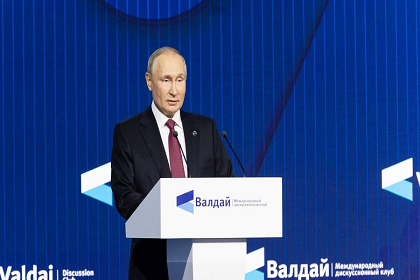 Courtesy: Valdai Discussion Club
Courtesy: Valdai Discussion Club
The reference to India by Russian President Vladimir Putin at the Valdai Discussion Club may be interpreted as encouragement to New Delhi to use its good offices to nudge the warring sides to the negotiating table. Mediation is a big power game, and this may be the right time for India, at the cusp of the G20 Presidency, to start with a record of success
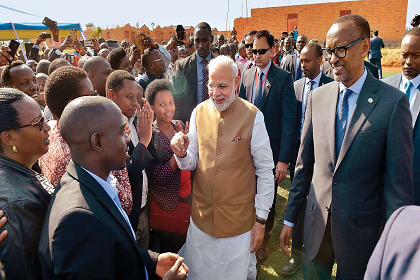 Courtesy: DNA India
Courtesy: DNA India
India and Africa are two of world's significant emerging powers whose relationship has been growing strong over the years. In his review of Rajiv Bhatia’s book India-Africa Relations: Changing Horizons, Peter Cozens, former Royal New Zealand Navy officer highlights why it is a necessary read for those interested in India-Africa relations as they are today.
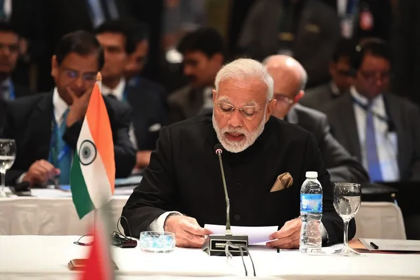 Courtesy: Narendra Modi/Facebook
Courtesy: Narendra Modi/Facebook
India will be president of the G20 in 2023. The world’s most influential economic governance body is facing an existential crisis, where the major powers have fallen out. With geopolitical currents redefining geo-economics, India needs to be ready to emerge as the chief global diplomat.
 Courtesy: zeenews
Courtesy: zeenews
Sri Lanka's crippled economy requires immediate and robust reforms. India faced similar adversity when PV Narasimha Rao pulled the country out of the economic crisis in 1991. Will new president Ranil Wickremesinghe follow the example of India's 1991 reforms to save his country and economy?
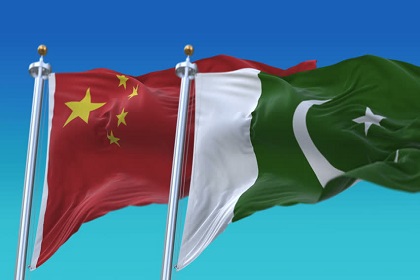 Courtesy: Shutterstock
Courtesy: Shutterstock
Pakistan’s latest economic survey reveals the extent of the country’s indebtedness to China. High-interest Chinese loans, reckless multilateral borrowing, and ever-increasing defence budgets have deleteriously impacted Pakistan’s finances. Any lasting solution to these problems will have to involve China.
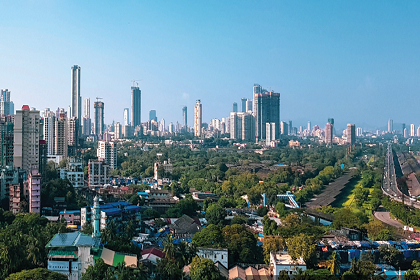 Courtesy: Hardik Joshi
Courtesy: Hardik Joshi
City-level climate action is gaining pace in India. This is crucial, given the country’s climate vulnerabilities and growing carbon footprint. Its success depends on mobilisation of climate finance, targeted devolution of central resources, inter-agency data-sharing and of course, public participation.
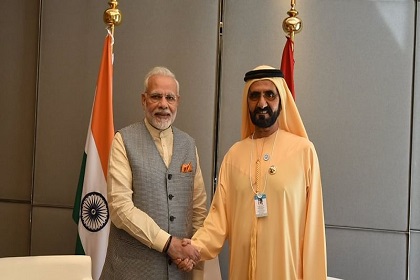 Courtesy: Twitter : Narendra Modi
Courtesy: Twitter : Narendra Modi
Indians are the largest expatriate community in the United Arab Emirates (UAE). Their contribution to building that nation is being celebrated this year, which is also the UAE’s golden jubilee year. Cultural fluency built on centuries-old trade and migration makes it easier for Indians and Gulf Arabs to collaborate.
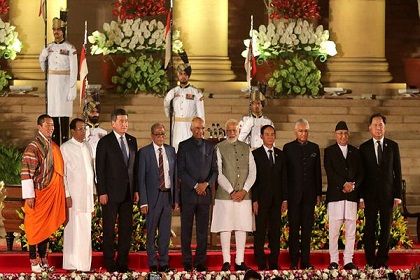 Courtesy: @BIMSTECInDhaka
Courtesy: @BIMSTECInDhaka
June 6, 2022, marks 25 years since India, Bangladesh, Sri Lanka, Bhutan, Nepal, Myanmar and Thailand joined hands to create BIMSTEC and infuse South Asia with economic and institutional cooperation. The strategic geography of this grouping has the potential to bring new synergy between South Asia and the recently-instituted Indo Pacific Economic Framework, ASEAN and the Quad, for a prosperous, secure Bay of Bengal Community.